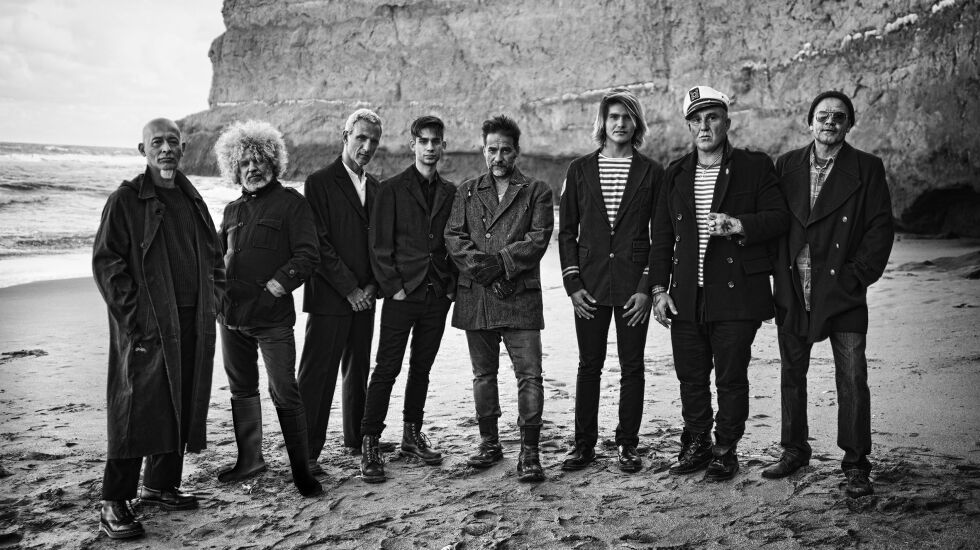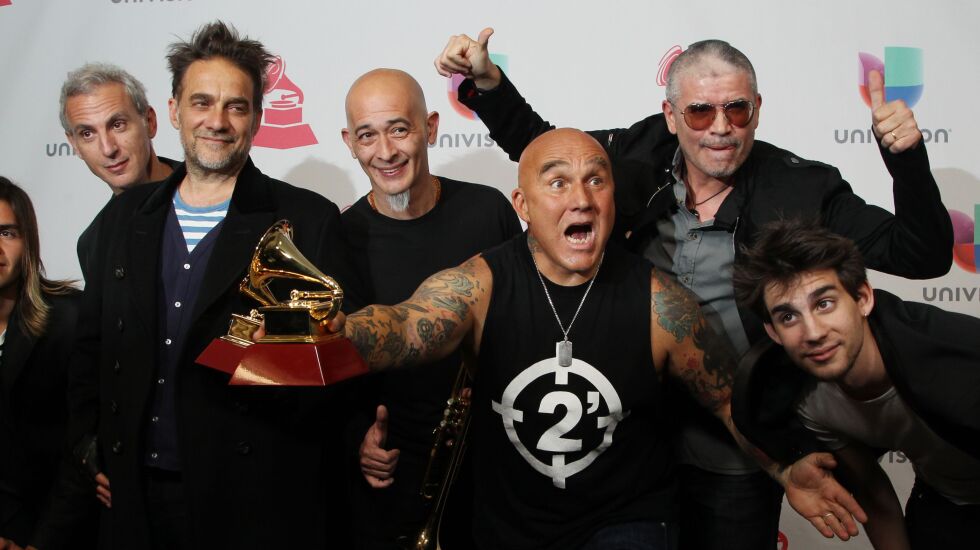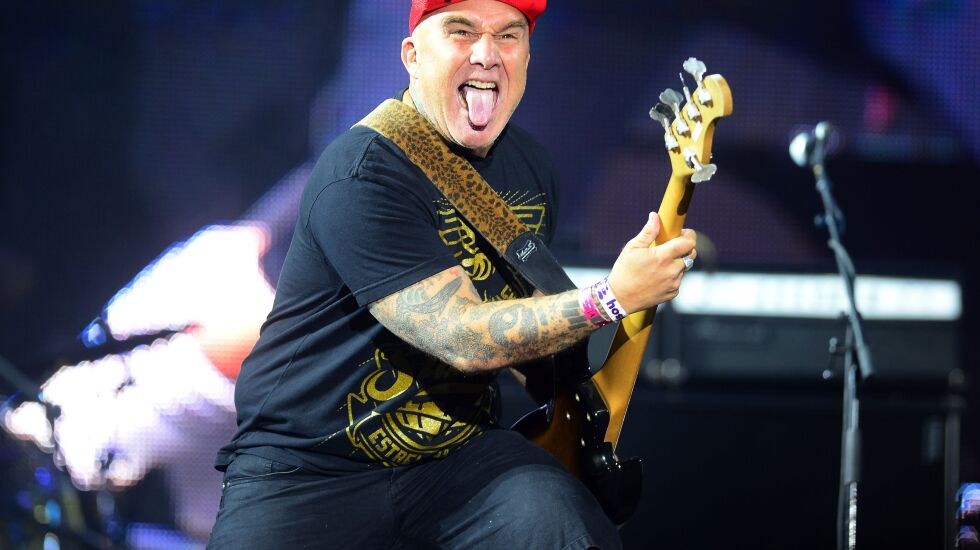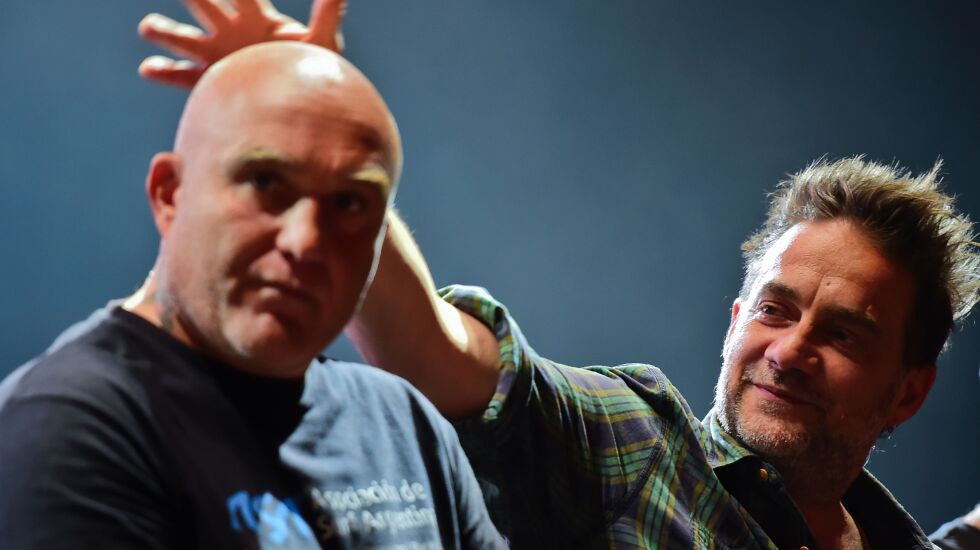
For Señor Flavio, co-founder of the Latin rock group Los Fabulosos Cadillacs, life is “compartir música, roncanrol — surf y skate es sagrado para nuestra familia.”
“It’s rock ’n’ roll to share music, along with skateboarding and surfing,” he explains. “This attitude is sacred to our family, and in a way, it is a metaphor — sharing is the key.”
One of the undisputed titans of Latin rock, Los Fabulosos Cadillacs will headline Saturday night at the 8th annual Ruido Fest, running Friday through Sunday at Union Park. Founded in 1985 in Argentina, the band specializes in ska rock, with elements of funk and tropical Latin influences. (Mexico’s Maldita Vecindad, which performs Sunday night at Ruido, also is famous for ska rock.)
“Los Fabulosos are like the Stones of South America,” said Max Wagner, co-founder of Ruido Fest, the alternative Latin showcase, and owner of promoter Metronome Chicago. “They don’t come to the States often, so they were a logical choice. They belong on the Mount Rushmore of Latin rock.”
The band recently marked its 35th anniversary, a milestone that its members don’t take lightly. Though LFC has had years off, as it did from 2002 to 2006, it has continued to exist and tour. Along with bassist and vocalist Senor Flavio (born Flavio Cianciarulo), the group was founded by lead vocalist Vicentico (born Gabriel Fernández Capello); other current members are Sergio Rotman on sax, Fernando Ricciardi on percussion, Mario Siperman on keyboards and Daniel Lozano on trumpet, as well as Señor Flavio’s son Astor and Vicentico’s son Florian.

Though the pandemic has curtailed its touring somewhat (the band was supposed to perform last year at Ruido, but had to cancel for logistical reasons), Los Fabulosos Cadillacs, as its name implies, are creatures of the road. (Señor Flavio, who came up with the band’s name, was inspired by the Clash’s cover of “Brand New Cadillac” on its 1979 album “London Calling.”)
“There will always be the desire to return to the Cadillacs,” he said. “We have never separated. When we stopped, we didn’t know if we were stopping for a year or two or five. But the door was always open to return.”
Of the continued good fortunes of Los Fabulosos Cadillacs, he said, “First of all, we thank the public, who allows us to [exist] in a certain way, and I thank my musical companions. We have grown as people and artists. Life is beautiful and can be very fragile, and we could disappear tomorrow. It’s not easy to stay a band for this long. … One cannot force that situation. Sometimes the situation of staying together as a family may be desired, but it may not be achieved. In my case, I come from a dysfunctional family, very broken in different aspects. So I come back to what I said, I have only to thank life and the public, for the fact that the band can continue to be here today.”

Another recent milestone is “la fecha de nacimiento” (birth dates) of Señor Flavio and Vicentico, now 58, born two days apart in July 1964.
“Thank you very much for the birthday wishes, and I suppose that astrally this link makes [our bond] more interesting and takes on added importance,” Señor Flavio said. “Not only that, but we were born in the same hospital! We have had a life being of musical brothers, brothers of art, brothers of existence. So there are many very interesting spiritual and artistic points in common.”
The Cadillacs’ most recent studio disc was “La Salvación de Solo y Juan” (2016), which chronicles the saga of two brothers’ upbringing under a strict father. Señor Flavio calls it “our rock opera. It is our most important album of recent times. For me, it is still brand-new and offers much to discover.”
Allmusic hailed it as “possibly the most ambitious of their entire career. Instead of playing it safe, they chose to bring a labor of love to completion.” The disc won two Latin Grammys: for best rock album, and also best song, for the track “La Tormenta.”

As for sharing, Señor Flavio cites the Clash’s “London Calling,” a punk rock-era testament to social and political rebellion, as a gift to rock — Latin and otherwise.
“It is more than my favorite album,” he said. “There are bands that transcend the fact of being your favorite, that end up being like a [catalyst] in your life. The Clash for me are that. It is a very open work, especially for a band that was understood as, in quotes, a ‘traditional punk rock band,’ [but this disc transcends that]. lt is one of the iconic works of the ’80s, without a doubt, an indisputable cultural reference of our generation. For us, it set us on fire. It set me on fire. It’s like a university of street art and life.”
.







